Indie Artist Roundtable – Coronavirus Cancellations, Live Streams, & A World In Isolation
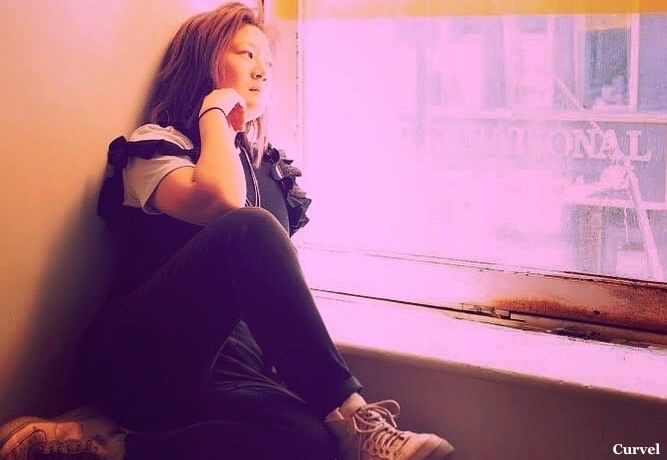
“What does music really mean right now?” asks NYC-based indie pop singer-songwriter Sophie Colette (pictured above), “It’s a supportive thing. It can heal, it can be an escape, it can be all those things, in a time that’s really necessary for it … for three minutes you can zone out, and listen to something different than the news, and I think that in itself is totally important for the arts, and it makes it an essential. It’s a human essential. It gives life in a different way.”
Unfortunately, the world being on lockdown due to the coronavirus pandemic has had a jarring, life-altering affect on those who make music. Tom Kunzman of the indie pop-rock band 18th & Addison says, “I think this is the first time where every musician on every level is kind of looking at, ‘Oh my God, I’m gonna be unemployed.’”
Both Colette and Kunzman had show dates cancelled due to the coronavirus pandemic, with venues being forced to close their doors.
Drew Angus, a singer-songwriter based in Brooklyn, was due to go on tour opening for Marc Broussard, but that tour has been cancelled. Similarly, Nashville-based alt-pop artist Maggie Miles had to cancel her tour plans, as well.
I caught up with Colette, Kunzman, Angus, and Miles to ask them about the impact of those cancellations, as well as their feelings regarding live streaming shows, and what fans can do for their indie faves.
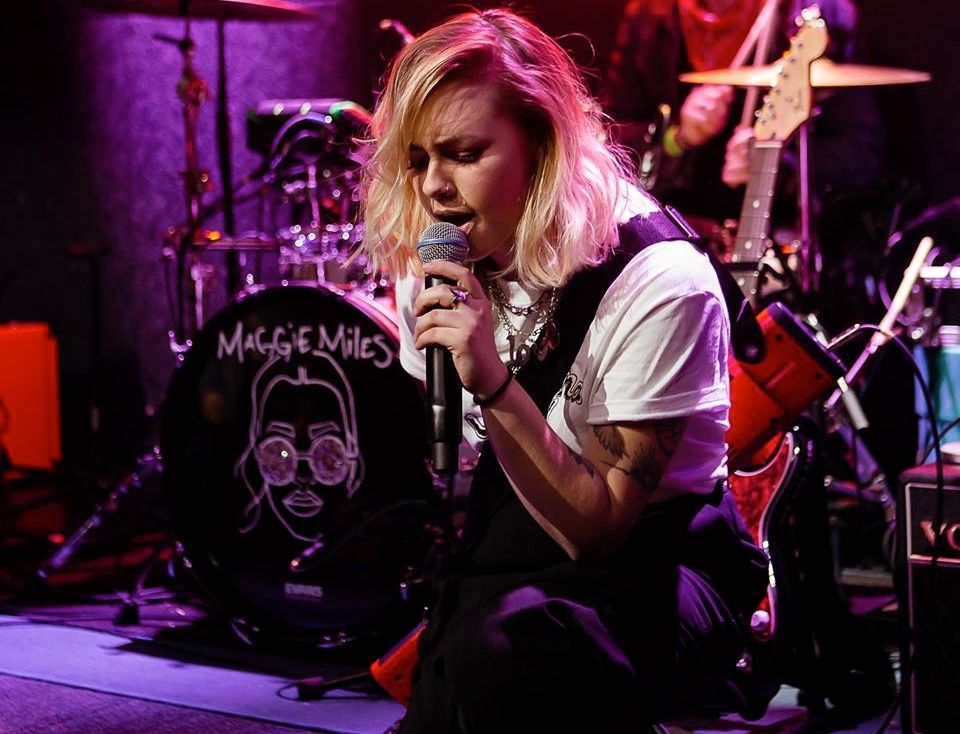
What’s the normal process of a show being cancelled versus this?
Drew Angus: It’s a choice that I usually make … because of something that’s come up in my life. It’s controlled.
This situation, we have no control.
I got an email from my boss at a company I play music for every Wednesday. They hit me up at the very end of February and basically told me, “Hey, all of our training sessions that you play music at are cancelled until the end of May, for now.” That was February 28th, or 29th. I was like, shit, after I get done with the Marc Broussard tour I’m just gonna move to Nashville for a while and see what’s up. That was my primary source of income right there.
A lot of people were still playing gigs. It seemed like some of these smaller venues were just not ready to cancel, because they have to have people in their door otherwise they can’t stay open. (Then) every day I’d see six more shows dropped off, Rockwood Music Hall just closed, Pianos just closed, and at that point New York City went into shut down mode. We didn’t have to cancel. It was just totally out of our control.
So I guess what this feels like is there’s a certain amount of helplessness. You want to do what’s right for the community, but also we’re gatherers, we’re people who rely on being in large groups of people to feel good, to spread joy, to spread the message that our music sends … to exist.
Maggie Miles: I’ve had shows canceled because of snowstorms, but never a pandemic. This is a first.
It’s interesting because they both are very helpless, there’s not anything I can do in either situation, but there’s something about it being a literal virus that could kill people that makes it a lot easier to be like no, let’s not do that.
The idea of someone coming out and supporting me at a show and then getting sick, I would feel horrible. Safety is the biggest thing.
Tom Kunzman: This was so out of nowhere. I feel like all of us just got sucker punched, and we all just woke up and have nothing going on. “Nothing going on” meaning there’s no tours, and we can’t get in the studio.
It’s crazy. It’s a vast difference, but what I will say is people are a little more understanding of the cancellation. It’s actually a little bit easier, solely because everybody is doing it. Everybody has to.
We had a tour coming up in May (that hadn’t been announced yet), and we were trying to really hold on to that with the tightest grip possible, and it just wasn’t happening. It was painful because we could see every venue trying to hold on to these shows, trying not to lose bands, and lose people attending, but what do you do? You can’t fight this right now. It’s best if you abide by the guidelines we have.
We’ve already started looking at summer dates, (so) if this clears up we can go on tour, because we’ll have the shows. It’s better than waiting for it to clear up.
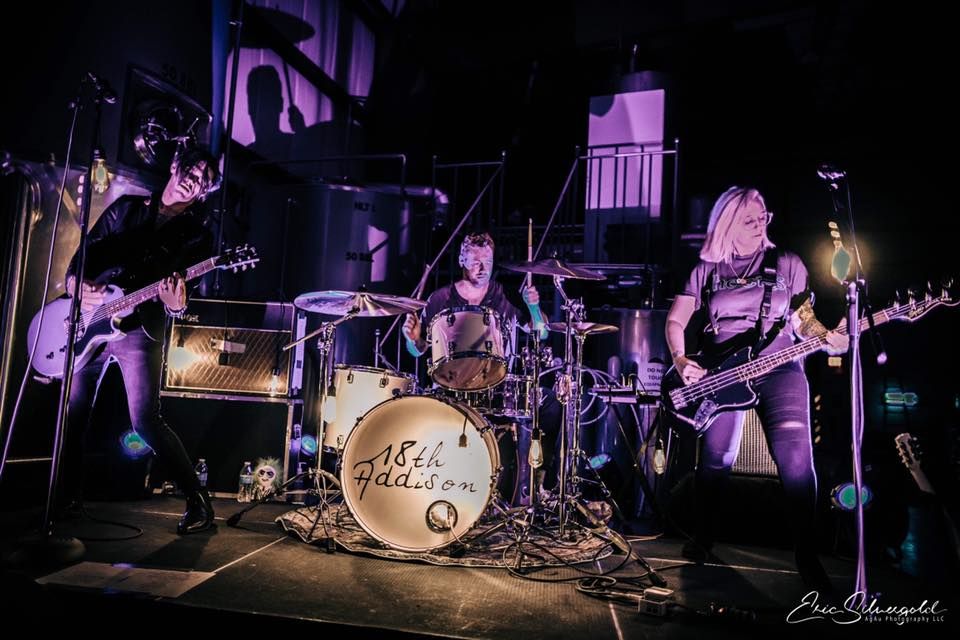
Aside from looking to re-book the dates, what did you do after the cancellations? What happened next after you heard from the venue, or the government, that it wasn’t going to happen?
Tom Kunzman: We were actually on our way down to Florida to visit Kate (Kunzman's) uncle right as the news was really letting out about all this. We were hearing about it the entire way down, and that was when the cancellations started. We were like oh man, this is serious.
On the way home I needed a distraction from the news, and from everything else, so we were going back and listening through demos, and stuff like that, of songs that we’ve been writing and working on and haven’t finished, and we actually came across a really strong batch of songs that we were like, “This is awesome! We have to keep working on these, because I ran out of ideas back then, but I have like a hundred now.”
So ever since we got home we’ve been writing and demoing again, whether it be for 18th & Addison, or writing for other artists.
Regardless, touring, and getting in the studio, is always at the front of your mind like, “How do we get there, how do we get that started?”
Sophie Colette: I was like, well, this was going to be the single release show, maybe I can do one at home. There’s so much live streaming going on right now maybe there’s an opportunity there.
It was sort of like, OK, there are other options that aren’t ideal, but it’s the best that we can do right now.
When Matt (Currie) from Rockwood emailed everybody it was basically like, “Hey, sorry, we gotta cancel,” I think everyone was also thinking of reschedule dates, so I actually got it rescheduled for the beginning of June.
There’s always still a possibility of that getting cancelled, too, because I think June is quite optimistic, but you gotta stay optimistic. It’s on the books for now.
Also, speaking of live streams, there was this opportunity I was given through Ari Herstand, he sent out an email about this festival called The UnCanceled Music Festival, it’s an online festival, live streaming, and venues can apply for it and invite artists. It’s by donation, and they split the proceeds between the venue and the artists.
Drew Angus: I was in total shock. I didn’t know what to do. There was nothing I could do. It was out of my control.
I know when people get laid off it’s a terrible feeling, but to watch a career, a job that you’ve spent the last six years building piece by piece, one booking at a time – and 90% of the stuff that I’ve done in my career is self-booked – to watch something that you’ve built from literally nothing to being comfortable, and able to pay rent, and take friends out for dinner … economically, spiritually, mentally, to take something that you’ve built up to this place that’s like wow, I’ve proved to myself, I’ve proved to my family that no, I don’t actually have to go get a job in the corporate world, I’ve built this little empire … last year I paid 47 musicians 1099s. That was a tax nightmare {laughs}, but it feels so good to have built a business, a small business, that’s successful, that’s running on its own two feet. To watch that just suddenly disappear is the most disheartening thing.
I had no idea what to tell my core group of guys who play in my original band.
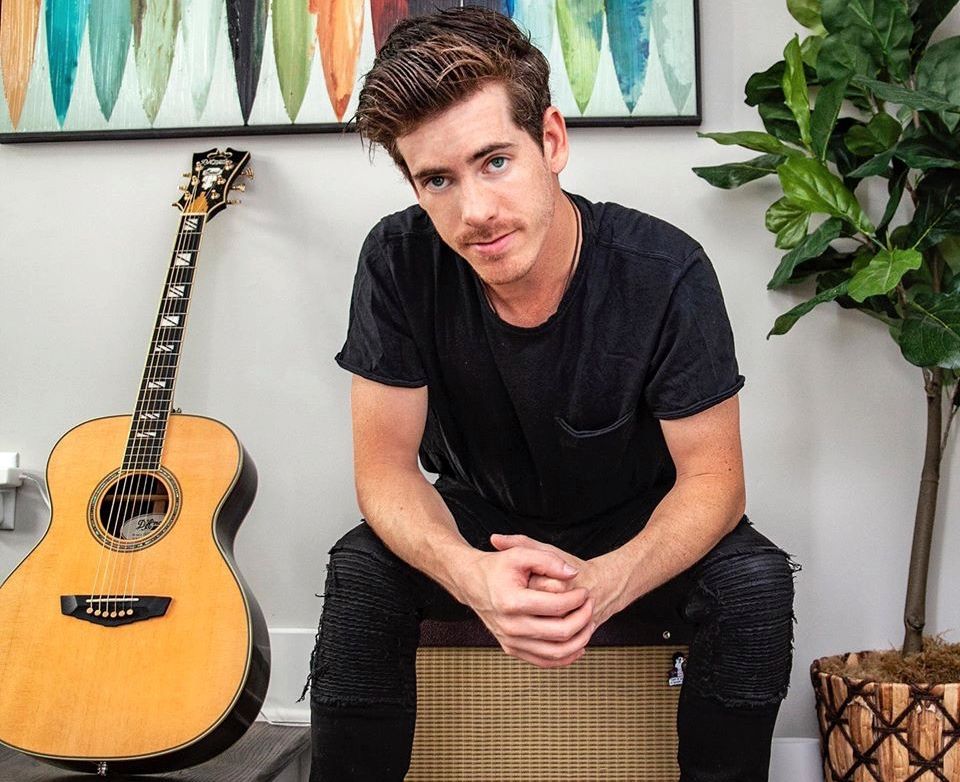
The act of live-streaming performances from home has become incredibly popular over the past few weeks. How difficult is it to balance wanting to perform, and not wanting people to get used to seeing you perform without actually attending a show?
Maggie Miles: That’s why I’m not doing it as often as other people.
I love live streaming, I think it’s a cool way to connect, but there is something so special about a live show, when you’re in the room.
In the situation where I did the live stream on Facebook the other night, that was really cool because it was a venue that let me use their account to do that, so it was a little bit different, whereas I’ve been doing live streams here and there on my Instagram, but I’m trying not to do them too much because literally every five minutes I get a notification that someone is live streaming.
Tom Kunzman: I keep hearing people call this “the new normal,” and it drives me absolutely insane, because it’s not a normality, and it shouldn’t become that. We shouldn’t allow that for our lives, for “the new normal” to just be hermits forever.
A lot of people are doing live streaming, and we did one on Stageit. We had teamed up with the Sweet Relief Musicians Fund for the (now cancelled) tour (in May), and a portion of all the ticket sales were gonna go to them, so we did the same thing with our StageIt show.
The hard thing is, buying a ticket and watching a virtual concert, you do hope that doesn’t become too comfortable, because there’s no real payoff for that – playing, and then just looking at comments.
You’re also like, man, I don’t want to do too many of these, because I don’t want to get comfortable playing on my couch. That’s not what we got into music to do.
The biggest payoff is playing on a stage, or just in a small room, or a large room, whatever the case is, as long as there’s people in front of you, and there’s that exchange of energy.
Drew Angus: I think the novelty (of live streaming shows from home) is gonna wear off at some point … maybe. I don’t know, this is such uncharted territory.
The cover band world, I think, can live in the live stream space. Artists doing original music, I think we’re having a harder time coming to grips with what it means to live stream. It just doesn’t feel authentic to some extent, because part of what I do, and part of what I think a lot of original artists do when they play out, is feed off of the audience. When you finish a song and there’s silence, it doesn’t feel authentic.
Sophie Colette: It’s like, what can you do? You want to share with people, you want to connect, and you want to play.
But you have to keep looking at positives – everyone has a front row seat, everyone has an opportunity to see you.
You just have to take advantage of it, and do what you can. I’m gonna be at my mom’s, she has a grand piano, so I’m like alright mama, I’m gonna transform your living room into a mini soundstage.
I think there is no replacement for live concerts. Everyone knows that. It’s also like there’s no replacement for talking to somebody in person.
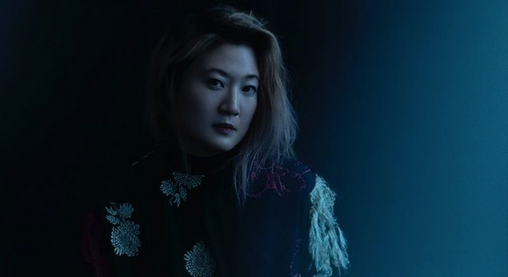
What else are you doing artistically while waiting for the world to reopen?
Sophie Colette: I’m just pushing myself to keep writing.
And there’s this whole internal battle, and I know I’m not alone, where it’s like OK, now is the time to be really productive, you have all day, so what are you going to make of yourself? But you’re just exhausted from the emotional weight of knowing everyone is out of a job, everything is in question.
It’s been hard, to be honest, to be as prolific as I want to be, but I think, at the same time, it is a quiet time to hone your skills, or learn a new instrument, or just dig deeper in everything that you’re doing.
I’ve been listening to Lambert, and Gabrielle Olafs, who is Icelandic. They’ve put on a few live shows, and it’s just kind of like remembering what I love about music.
It’s also a great opportunity to listen to full albums straight through.
Drew Angus: Last week a couple of my friends asked me to hop on and do a little Nashville style songwriter (session), and we had a really good time talking about music, what we’re doing to stay sane, and then playing three or four songs back and forth. The other night I started my own version of that (on my Instagram). I hit up a bunch of artists and said, “Hey, does anybody want to hop on, play some music, talk, and cross-pollinate fans?”
The first one was with my friend April Kry, and we ended up on there for like an hour. We had 350 people view it over the course of the night, which is really cool, so I have them lined up for the next week and a half. (It will be) artists talking, playing some songs, and just being ourselves. It’s an outlet to play music for people, but also not have to host your own live stream and put on a show.
Maggie Miles: I am trying my best to create right now … (but) I notice when I force art it just isn’t as good, so I’m trying to have grace, and just let it happen naturally.
When you’re normally seeking inspiration do you do things that you can’t do right now because of all the restrictions we currently have placed on us?
Maggie Miles: Live performances are always inspiring to me in a creative way. It usually flips some kind of switch in me. In the rush of adrenaline-pumped moment sometimes I do things on stage that I didn’t do in the studio, like on my keyboard, or just in general with the way that I’m singing, or the way that I approach a song. Sometimes I view the song in a different way.
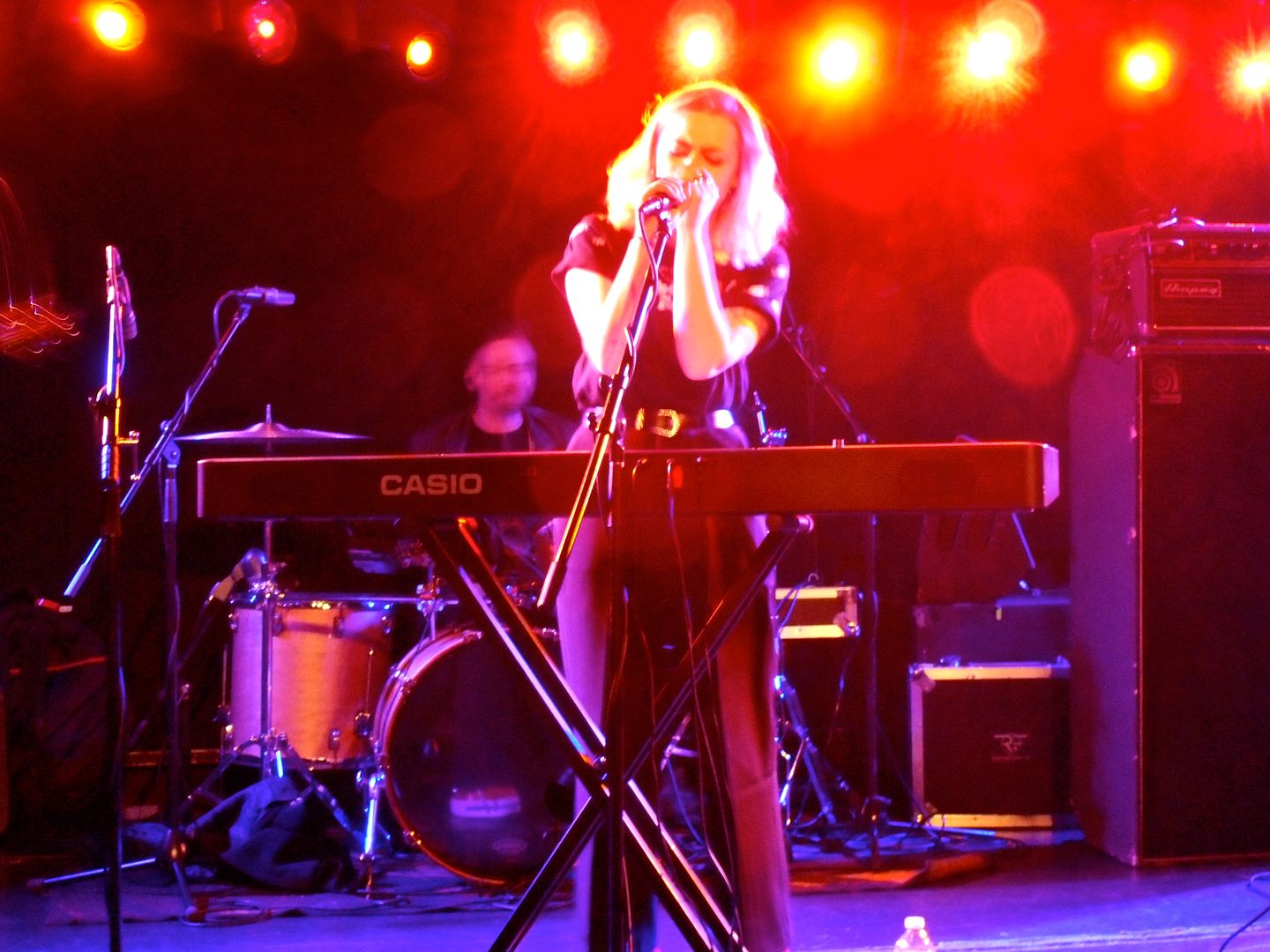
What message do you have for fans who were planning on attending your shows, and want to show support during this time?
Tom Kunzman: We were very fortunate with the May tour that we didn’t get the chance to announce it before all this kicked in, so I’m happy that we didn’t really let anybody down. As for the New York shows and the Jersey dates that we were telling people about – it sucks, for sure, because the #1 way to support bands is go to their shows. Support them by buying a ticket to see them play, and get in there, get some merch.
Luckily, our merch is still kinda going. That’s all on our main website, and I’m sure every other band either has their own website, or a Big Cartel, or a Bandcamp that you can buy merch from, or CDs, or download their music.
Trying to go directly to fans is what’s most important, and if a band is doing some sort of live stream show, just give them a morale boost, if nothing else. Just a nice little pat on the back for playing a few songs, because these are really tough times.
Sophie Colette: Responding back to the artist, even to just be like, “Hey, how’s it going?” I think that’s really important because that’s a relationship that is so important, it keeps both sides going.
Continue to support the artist as you normally did, nothing about that has changed, it’s just now a little bit harder, and even more meaningful. None of it is taken for granted ever.
Please check out all four of these artists at their websites, where you can follow them on your social media of choice – sophiecolettemusic.com, drewangus.com, 18thandaddison.com, and maggiemilesmusic.com.
For more on what’s happening to the indie music industry during this time, check out my previous article, Why The Fate of Indie Music Venues Should Matter to Everyone, & How We Can Help.

Comments